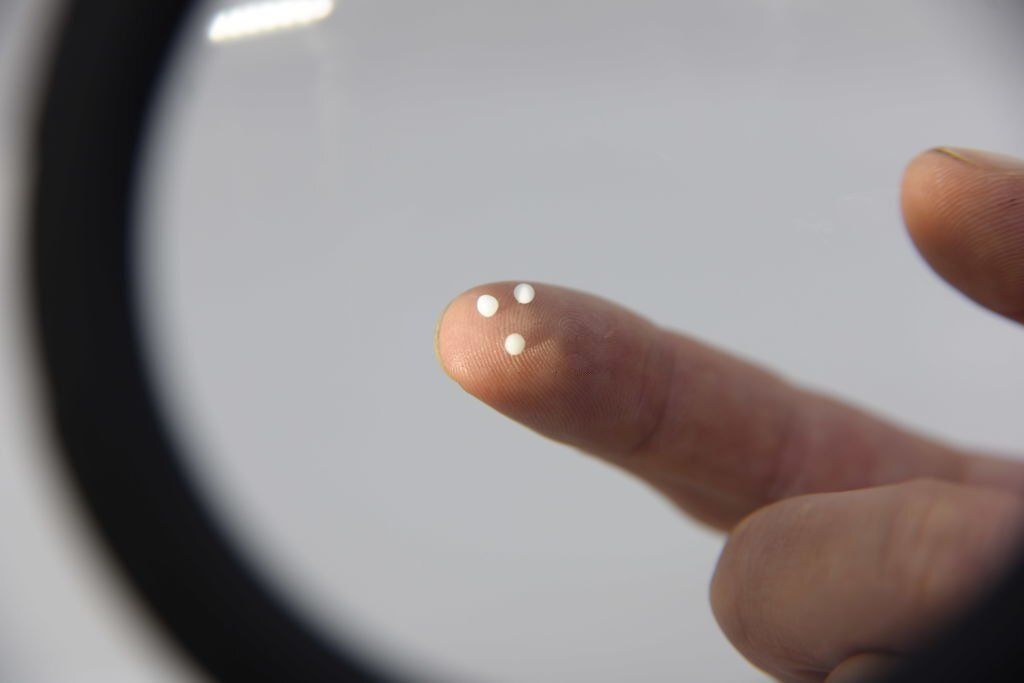This article is reviewed, corrected, and approved by: Dr. Joshua Collins M.D. | MRCP। FRCP
The hectic pace of today's world can often lead to neglect of health and wellness. As a result, a variety of ailments develop, disrupting normal life flow. Being familiar with various types of medical treatment becomes imperative in situations like these.
The response to various remedies varies from person to person, depending on factors such as symptoms and genetics. Due to advances in medical sciences, there are many options for medical treatments available today. Historically, allopathic medicines have been used for medical treatments due to their short duration.
In spite of their effectiveness, allopathic medicines can lead to serious side effects, sometimes resulting in the emergence of entirely new diseases. As a result, alternative medicines are getting attraction. Homeopathy and Ayurveda are two of the most widely practiced of natural medicine.
This article will compare the two to help you determine which is the best match according to your condition. I won't be saying that you should go for an ayurvedic or homeopathic option because it should be your own decision. Because you are your own boss.
I am writing to make you understand which one is good in which situation. So, let's begin.
Overview of Ayurveda

Life's fundamental knowledge is dealt with in Ayurveda. Around ‘3,500’ years ago, it originated in India. This form focuses on three factors in the body known as 'tri-doshas' (faults). Vat (wind), Pit (bile), and Kaph (phlegm).
The treatment also focuses on natural healing in order to prevent the disease and provide immunity. It is therefore called the mother of all medicines.
Many masters have taught it to their students since the Vedic Period. Ayurveda believes that prevention is more suitable than treatment and cure. A healthy mind, body, and spirit prevent diseases.
To achieve this balance, each individual must find their own way according to their inner makeup. A disturbed balance can lead to diseases.
When it comes to restoring health and well-being, identifying the external and internal factors that disrupt the balance can be beneficial. Thus, by modifying our lifestyle and eating habits, we can restore these doshas to a healthy state.
Overview of Homeopathy

Homeopathy is a type of medicine that triggers the immune system of the body with medicine. As a result, it fights against diseases. In addition, homeopathy provides safe and effective remedies without any side effects.
Furthermore, it believes that any substance can cause symptoms in a healthy individual that could be cured in an ill individual. Medicine is prepared by adding many plants, vegetables, and synthetic materials with distilled water and alcohol.
A German physician, Samuel Hahnemann, developed this system of alternative medicine. Homeopathy literally means "similar suffering." Treatment focuses on the whole person rather than just the affected area.
Ultimately, homeopathic practices aim to restore mental, physical, and emotional health to promote healing.
Ayurveda vs Homoeopathy: The Differences
I have pointed out the main differences between Ayurveda and Homoeopathy in the given chart.
Homeopathy and Ayurveda: Criticisms
There have been many criticisms regarding ayurveda and homeopathy throughout the ages.
Homeopathy
Several medical professionals view homeopathy as a false type of treatment. It is said that because medicines are diluted, there is no longer any indication of the original component in the mixture.
Even though this treatment is safe and does not cause any side effects in humans, it is still advisable to inform patients of its true nature before opting for it.
Ayurveda
Scientists have criticized Ayurvedic treatment for lacking sufficient evidence or clinical trials proving its efficacy. It is also possible for some herbs and minerals to be toxic to humans, so there are safety concerns about their usage.
What To Consider Before Using Ayurvedic Medicine

- If you have a medical problem, see a conventional provider instead of using Ayurvedic Medicine.
- Ayurvedic products should not be used if you have a health condition.
- The United States does not regulate or require licensing for Ayurvedic practice or education.
- Pregnant women should consult their healthcare provider or doctors before using any Ayurvedic products.
- Whenever you make use of alternative or holistic health methods, please inform your healthcare providers about them. Describe how you manage your health. As a result, coordinated and safe care can be ensured.
Things To Consider Before Using Homeopath Medicine
The first time you go to a homeopath doctor, they'll question you about any specific health requirements, your general well-being, lifestyle, and diet.
A homeopath will then determine the treatment course, which often involves taking homeopathic remedies such as pills, capsules, or tinctures.
In order to assess how effective the treatment is, your homeopath may suggest a second appointment.
- In case of a medical problem, do not delay visiting a health care provider or replace proven conventional care with homeopathy.
- When you visit your healthcare provider, bring any homeopathic products you are considering using. Your provider can tell you whether the product has any adverse effects or interactions with medications.
- Children and adults should follow the recommended conventional immunization schedule. You shouldn't substitute homeopathic products for traditional immunizations.
- If you are pregnant and want to have homeopathy medicine, then you need to consult with a professional.
Conclusion
Similar to Ayurveda, homeopathy uses natural remedies in order to treat diseases and ailments. In both Ayurvedic and Homeopathic treatment, reactions occur late, and there are no side effects. Aside from treating a specific disease, these two also look at the mental and physical well-being of an individual, unlike Allopathy.
As another similarity, both homeopathy and Ayurveda differ from allopathy. Many doctors criticize homeopathy and Ayurveda for their lack of credibility. But still, these two methods of treatment have been acknowledged worldwide for the cure of many diseases.
Frequently Asked Questions
Question 1: Can I Use Ayurvedic Medicine For Constipation?
Answer 1: Yes, you can use it. Many people get relief from constipation using Ayurvedic medicine. There is a most popular Ayurvedic gentle laxative called Triphala. The dried fruit is a combination of those from Emblica officinalis, Terminalia bellerica, and Terminalia chebula.
Question 2: What are the 5 elements of Ayurveda?
Answer 2- Ayurveda mainly concentrates on the five elements, ether, fire, earth, water, and air.
Question 3: What is homeopathy nutrition?
Answer 3: In combination with nutrition, homeopathy not only heals you from within but also helps you maintain a healthy lifestyle.
Question 4: What is Ayurvedic powder?
Answer 4- In this fast-paced world, Ayurvedic powders provide a convenient method to implement Ayurvedic principles. Natural herbs are used in making them.
Question 5: Which Ayurvedic powder is best?
Answer 5- The following Ayurvedic powder is suitable for use:
- Saffron.
- Ashwagandha.
- Bacopa.
- Triphala.
- Amla.
- Curcumin.
- Shilajit.
- Boswellia.
Question 6: How does Ayurveda treat diseases?
Answer 6: There are a variety of disorders that Ayurveda claims to treat. Anxiety is one of the disorders Ayurvedic practitioners believe can be effectively treated with their approach. Along with this, Ayurveda is used to treat asthma and arthritic condition.
Question 7: What is homeopathy used to treat?
Answer 7: In some common disease homeopath can be used.
- Chronic fatigue syndrome.
- Migraines.
- Depression.
- Rheumatoid arthritis.
- Premenstrual syndrome.
- Irritable bowel syndrome.


